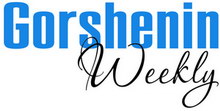
EGF Turkey File 
(90 Kb)
Insights into Turkish Domestic and International Politics during December 2011
Key Points:
- The TSK mistakenly bombs unarmed Kurdish smugglers near the Iraqi border, adding yet another incident
that sets back Turkish-Kurdish relations and possibly fueling further violence.
- Military, economic and political ties are severed between France and NATO ally Turkey following the National
Assembly’s vote to move an Armenian genocide bill forward.
- Turkey’s Central Bank sells off over $1 billion in dollars to combat rising inflation, though by month’s end the rate had surpassed 10%.
- Azerbaijan and Turkey agree to a new gas transport and supply deal for the Shah Deniz field, upsetting some
in Brussels who feel the new pipeline could undermine the time consuming progress for NABUCCO. READ MORE
- EGF Editorial |
Published on EGF: 21.01.2012
| External Relations
-
EGF Turkey File 
(97 Kb)
Following the earthquake on October 23, 2011, a second powerful tremor struck eastern Turkey on November 9, killing 40 people including a Japanese rescue worker and two Turkish journalists who were covering the aftermath of the October quake.
The strong quake came on top of a severe cold snap that left much of the province of Van covered in snow, as refugees in the stricken city of Ecris continued to live out of tents. READ MORE
- EGF Editorial |
Published on EGF: 30.12.2011
| External Relations
-
IMF suspends talks with Ukraine until latter closes gas deal with Russia 
(2 Mb)

ISSUE #38
11/07/2011
The visit by the International Monetary Fund (IMF) has yielded no significant
result.
On November 4, 2011, Max Alier, the IMF Resident Representative in Ukraine,
announced that the fund has decided to take a pause in negotiations with Ukraine
“to enable some additional technical work to be carried out.” “Policy discussions are
expected to resume in the near future,” he noted. READ MORE
- Gorshenin Weekly |
Published on EGF: 23.11.2011
| External Relations
-
Ukrainian MPs continue working on new electoral draft law 
(1 Mb)

ISSUE #39
11/14/2011
On 14 November 2011, a temporary special commission for drawing up a new
electoral law continued its work.
The commission was set up on 3 November 2011. It is noteworthy that it has not
achieved any results in its first week of work. The main reason can be attributed to
the disagreements regarding the key provisions of the electoral draft law which
arise among the MPs representing both the majority and the opposition. READ MORE
- Gorshenin Weekly |
Published on EGF: 23.11.2011
| External Relations
-
Parliament adopts law on election of MPs 
(2 Mb)

ISSUE #40
11/21/2011
On 17 November 2011, the Supreme Council of Ukraine adopted a new draft
law on electing MPs.
As many as 366 lawmakers voted in favour of the bill, with 226 votes being the
required minimum for its adoption. Both representatives of the majority and the
opposition participated in the vote. READ MORE
- Gorshenin Weekly |
Published on EGF: 23.11.2011
| External Relations
-
European Parliament adopts resolution on Ukraine 
(2 Mb)

ISSUE #37
10/31/2011
On 27 October 2011, the European Parliament adopted a resolution on the
current situation in Ukraine.
The resolution sets out support for Ukraine's prospects to join the EU. READ MORE
">READ MORE
- Gorshenin Weekly |
Published on EGF: 02.11.2011
| External Relations
-
Negotiations on setting up a free trade area between Ukraine, EU completed 
(2 Mb)

ISSUE #36
10/24/2011
On 20 October 2011, Ukraine and the EU announced that they had completed
negotiations on setting up a free trade area (FTA).
“After intensive talks, we managed to agree all the key parameters of an FTA
agreement,” the Ukrainian first deputy prime minister and minister of economic
development and trade, Andriy Klyuyev, said. READ MORE
- Gorshenin Weekly |
Published on EGF: 25.10.2011
| External Relations
-
Law on decriminalizing economic offences sparks debate 
(2 Mb)

ISSUE #34
10/10/2011
On 6 October 2011, the Ukrainian parliament adopted the first reading of a
presidential draft law on decriminalizing economic offences.
Under the draft law, perpetrators of economic offences will no longer bear criminal
responsibility but instead will face administrative sanctions such as fines. READ MORE
- Gorshenin Weekly |
Published on EGF: 23.10.2011
| External Relations
-
Court to declare verdict in Yuliya Tymoshenko case on 11 October 2011 
(2 Mb)

ISSUE #33
10/03/2011
On 11 October 2011 a Kiev district court will start to read the verdict
regarding the leader of the opposition Fatherland party and former Ukrainian
Prime Minister Yuliya Tymoshenko.
A correspondent of the Ukrainian news and analysis website Lb.ua reported that
that court debates in Tymoshenko's case were completed on 30 September 2011. It
was expected that Tymoshenko would deliver a concluding speech in the court on
the same day. However, the former prime minister requested her address to be
rescheduled for 2 October 2011. She explained her demand by the fact that prior to
her speech, the prosecutor's office and civil plaintiff had unveiled fresh “aspects
that totally differ from the indictment.” READ MORE
- Gorshenin Weekly |
Published on EGF: 22.10.2011
| External Relations
-
